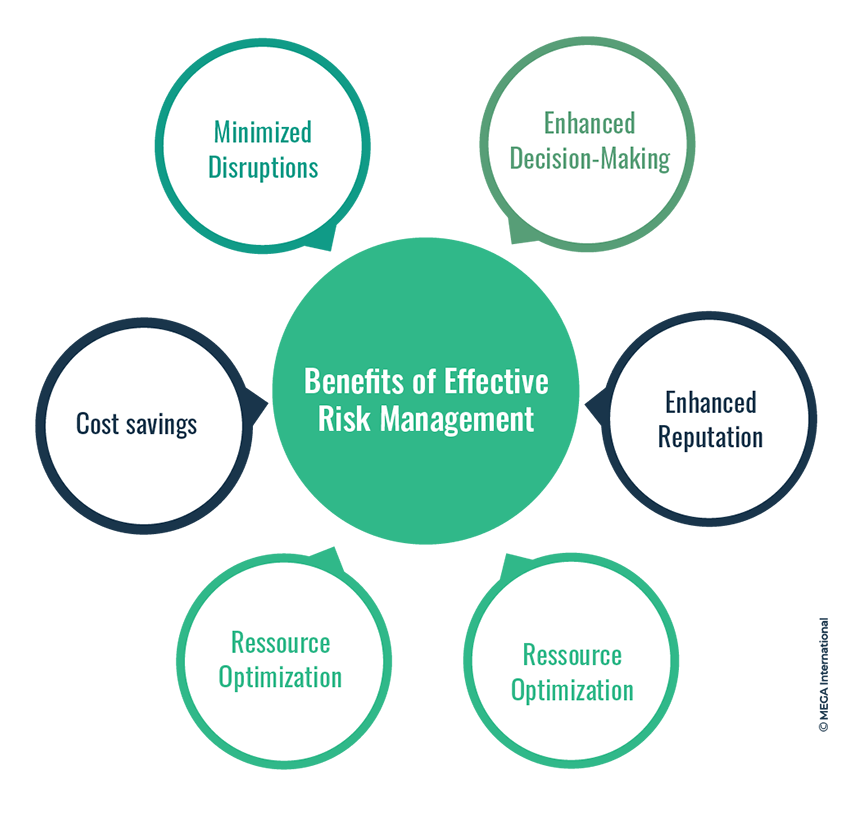Navigating the Difficulties: Understanding the Importance of Risk Management
Navigating the Difficulties: Understanding the Importance of Risk Management
Blog Article
Discovering the Relevance of Risk Management for Effective Decision-Making Techniques
In the elaborate world of organization, Risk Management emerges as an important element in the decision-making process. The ability to determine potential risks and chances, and plan as necessary, can mean the difference in between success and failing.
Recognizing the Idea of Risk Management
Risk Management, a crucial component in decision-making, is commonly misinterpreted or oversimplified. Generally, it refers to the identification, examination, and prioritization of dangers to minimize, keep track of, and regulate the probability or effect of unfortunate events. Nevertheless, it's not just concerning preventing negative results, yet likewise about acknowledging potential possibilities. Risk Management entails self-displined and organized methods, making use of data and informative analyses. It needs a thorough understanding of the company's context, goals, and the prospective threats that could prevent them. From economic uncertainties, lawful liabilities, critical Management mistakes, to mishaps and natural disasters, it attends to various dangers. Notably, reliable Risk Management is not stationary; it's a constant, forward-looking process that develops with transforming conditions.
The Role of Risk Management in Decision-Making Processes
In the realm of tactical planning and service operations, Risk Management plays an essential duty in decision-making processes. It aids in recognizing prospective hazards and uncertainties that could impact the achievement of company objectives. By tracing these threats, firms can develop strategies to alleviate their influence, guaranteeing service connection and stability. Risk Management hence becomes an essential device in decision-making, aiding leaders to make educated choices based upon a thorough understanding of the dangers involved. It encourages a positive technique, allowing organizations to prepare and anticipate for feasible future situations. This substantially decreases the chance of unfavorable effects, advertising a lot more efficient and effective decision-making techniques. Risk Management serves as a crucial component in the decision-making processes of any company.

Just How Risk Management Improves Strategic Planning
In the context of critical planning, Risk Management plays a crucial duty. Initiating with the identification of prospective risks, it better extends to the implementation of Risk mitigation steps. The function of Risk Management is vibrant however not fixed, as it requires consistent surveillance and adjusting of approaches.
Recognizing Potential Threats

Executing Risk Mitigation
Having established the importance of recognizing prospective dangers, the next step is to explore Risk mitigation. This procedure entails establishing and applying techniques to take care of identified threats successfully. It is an essential element of tactical planning as it enhances decision-making by lessening possible negative results. Risk mitigation approaches can vary from Risk evasion, Risk transfer, to risk decrease. Each strategy needs to be tailored to the particular Risk, considering its possible effect and the company's Risk resistance. In addition, reliable Risk mitigation calls for a deep understanding of the Risk landscape and the prospective impact of each Risk. This understanding allows organizations to prioritize threats and allot sources efficiently, ensuring that one of the most considerable hazards are resolved initially.
Monitoring and Adjusting Methods
Though Risk mitigation is an essential action in calculated preparation, constant surveillance and change of these techniques is similarly essential. It additionally provides a possibility to examine the success of the Risk Management steps, enabling changes to be made where required, additional improving tactical planning. Tracking and adjusting Risk Management techniques is an essential element for enhancing an organization's durability and tactical preparation.
Situation Researches: Effective Risk Management and Decision-Making
In the world of service and financing, effective Risk Management and decision-making typically serve as the columns of prosperous ventures. These situations highlight the value of astute Risk Management in decision-making procedures. These cases underscore the vital duty of Risk Management in strategic decision-making.
Tools and Methods for Efficient Risk Management
These tools, such as Risk signs up and heat maps, aid in identifying and assessing potential find out threats. Risk reaction approaches, a crucial component of Risk Management, involve approving, view preventing, transferring, or mitigating risks. With these tools and strategies, decision-makers can browse the complex landscape of Risk Management, therefore helping with notified and efficient decision-making.
Future Trends in Risk Management and Decision-Making Approaches
As we check out the substantial landscape of Risk Management, it becomes noticeable that the devices and techniques utilized today will certainly proceed to evolve. The principle of Risk culture, where every participant of a company is mindful and involved in Risk Management, will get more importance. These patterns advertise a more positive and comprehensive technique towards Risk Management and decision-making.
Final thought

Risk Management therefore comes to be an essential tool in decision-making, assisting leaders to make enlightened options based on a thorough understanding of the risks included. Risk mitigation approaches can range from Risk avoidance, Risk transfer, to take the chance of decrease (importance of risk management). Efficient Risk reduction needs a deep understanding of the Risk landscape and the possible impact of each Risk. Risk action approaches, a crucial part of Risk Management, include accepting, staying clear of, transferring, or mitigating threats. The concept of Risk society, where every participant of a company is mindful and included in Risk Management, will get more importance
Report this page